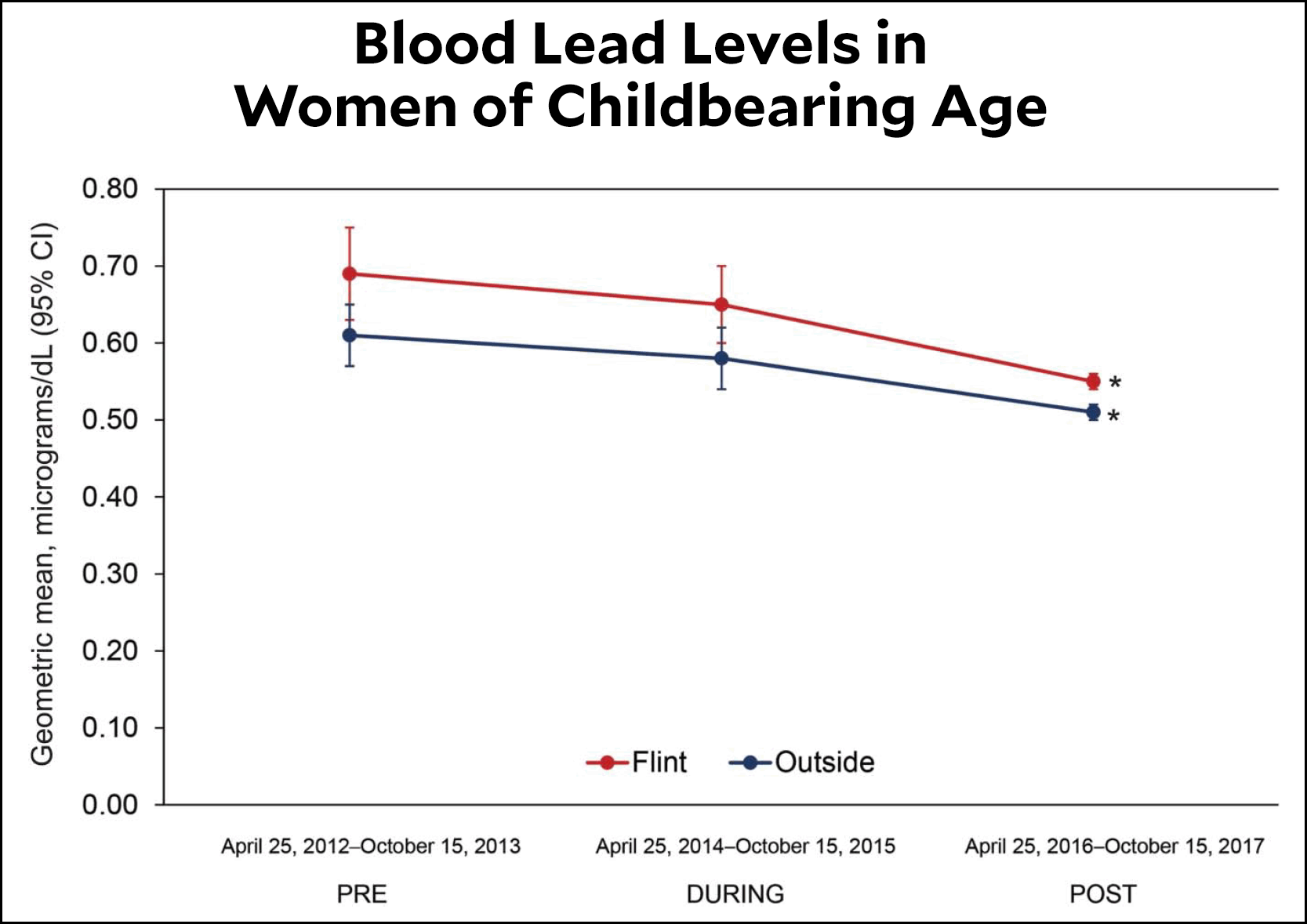A couple of years ago I wrote about a paper claiming that the fertility rate of women in Flint, Michigan, plummeted during their water crisis. Today I got a copy of a newly published study of lead levels in women of childbearing age during the Flint water crisis. It’s very carefully done and uses reliable data. The sample sizes are fairly small, but the results are nonetheless convincing. Here they are:

The lead levels of young women in Flint didn’t increase at all during the water crisis. In fact, they might have decreased. What’s more, the absolute levels are so low that it’s nearly impossible that they could have had any effect on stillbirths or spontaneous abortions, which no one has ever reported for BLLs under 5 ug/dl, the current reference standard for high lead levels. In Flint, it turns out that virtually no one in any of the time periods studied had a BLL over 5 ug/dl:
There is little debate that high maternal blood lead levels can result in the occurrence of spontaneous abortion and preterm birth. In a small study, although Shannon reports a significant number of preterm births in 15 pregnant women with severely elevated blood lead levels (range 40–104 micrograms/dL), there were no spontaneous abortions….Review of the literature reveals no study showing an association with either spontaneous abortion, late fetal deaths, nor preterm births with maternal blood lead levels below the CDC reference value of 5.0 micrograms/dL.
….Available Flint perinatal data from the Michigan Department of Human and Health Services indicate stillbirth rates were not significantly different before compared with after the water switch time period. The Michigan state data reveal 2,348 live births, and 25 stillbirths before the water switch (July 1, 2012–December 31, 2013) compared with 2,121 live births, and 24 stillbirths during the water switch (July 1, 2014–December 31, 2015).
In other words, the rate of stillbirths was 1.06 percent before the water switch and 1.13 percent during the water switch.
What happened in Flint was horrible. That said, Flint is now one of the most heavily studied cities in America, and virtually every credible study suggests the same thing: not only did the switch to Flint River water have no effect on public health, it never significantly increased blood lead levels in the first place. This might be because Flint water was never heavily lead poisoned to begin with, or it might be because Flint residents started using bottled water and tap filters fairly quickly after the alarms were sounded.
Either way, both parents and children in Flint should by now feel confident that their water debacle, as outrageous as it was, is vanishingly unlikely to have had any noticeable health effects. That’s a good thing.














